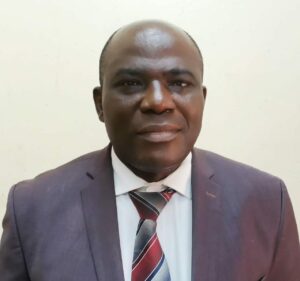It is our deep concern in this department to note that most of the teachers in our schools today irrespective of their different specialisations and levels have not undergone formal training in developing, planning, evaluating and developing tests and accurately measuring educational objectives.
The programmes are designed to empower teachers and pedagogic inspectors/evaluators to develop, plan, harmonise, innovate and re-evaluate Cameroon’s educational curriculum. It also imbeds in the learners competences and skills in different areas of specialisation. The programmes are well is designed to develop research skills and abilities to use these skills in establishing meaningful and appropriate programmes of study that will reflects the needs and aspirations of every Cameroonian.
The courses are tailored towards professionalising students to enable them develop and increase curriculum and evaluation competences, much needed area in Cameroon educational system. They cut across all disciplines either in social or natural sciences since all disciplines are expected to design and plan programmes (curriculum) and use evaluation procedures to evaluate these programmes.
These programmes precisely intend to develop intellectual and professional know-how towards research skills and the certitude to use these skills effectively and efficiently to bring about meaningful outcomes.
The courses are scheduled to enhance students in curriculum competence needed to develop curriculum in all fields of education such as;-curriculum issues, development, implementation, evaluation, and trends for innovations. These courses assume knowledge of educational measurement, evaluation and measurement of human behaviour and learning strategies in the field of education, social and behavioural sciences. The courses entail, testing, planning and construction, scoring and grading using statistical analysis in the course of this study.
The method of approach in programming courses in this department is based on an advanced design of taxonomy skills with emphasis on the cognitive, affective and psychomotor domains to bill instructional and behavioural objectives. The department insist on professional ethics in education and ethical values in evaluation.
Bachelor degree programme description:
First year degree programme: Students are introduced to the theoretical aspects of the subjects so that they can develop skills in the subject matter and also the University’s general courses in order to increase their academic output.
- Introduction and foundations of curriculum development and Practicum;
- Introduction to measurement and evaluation;
- Introduction to research methodology and statistics in education;
- Living languages and communication etc.,
Second year degree programme: The intermediate departmental courses are taught to students in their area of specialisation such as:
- Introduction to educational technology and applied research methodology;
- General pedagogy and practicum;
- Statistics in education;
- Information and communication technology in educational measurement.
Third year programme: Courses in are taught in students’ specialised subject areas to broaden their scope such as;
- curriculum innovations;
- techniques in developing and testing curricular and educational technology;
- reforms in Cameroon curriculum;
- Elementary tests development procedures, etc.,


